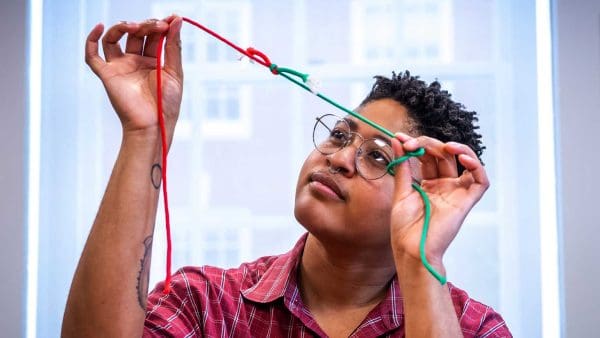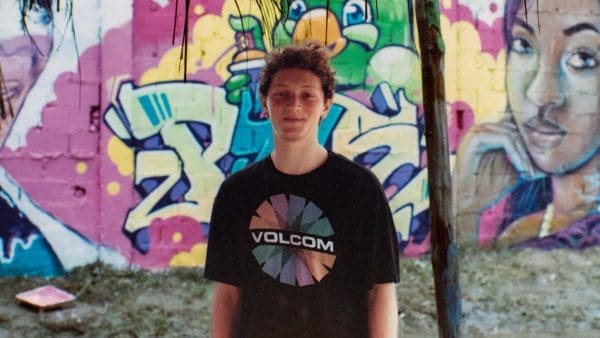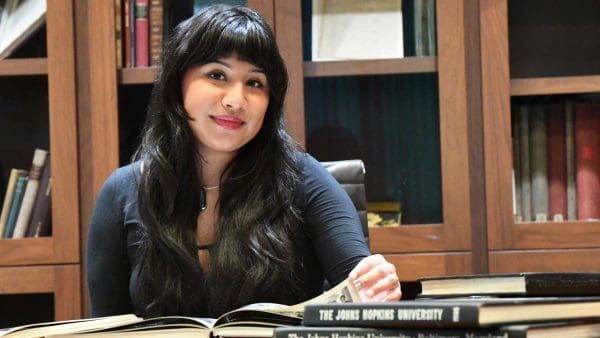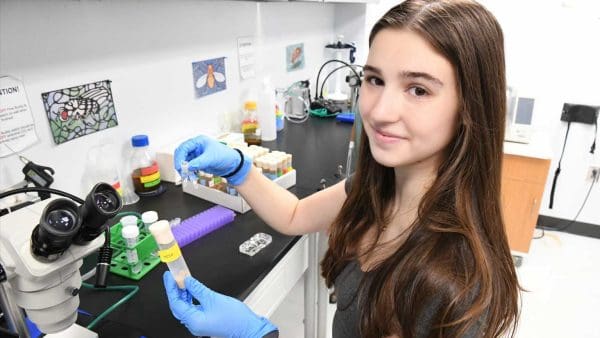When the Sandy Hook Elementary School mass shooting unfolded in 2012, Kobi Khong was just 10 years old. He remembers watching on TV as law enforcement led children out of the school with their eyes covered so they wouldn’t see their murdered classmates.
Having been made grimly aware of the pervasive gun violence in American society, Khong sought a way to stem the horror. “We’ve kept seeing this constant news cycle of terrible tragedies and gun violence, and I felt like I needed to do something,” says Khong, a junior majoring in public health studies. “Now being here at Johns Hopkins, I feel like I have a chance to do so.”
Gun Violence Solutions
Through the Hopkins Center for Gun Violence Solutions at the Bloomberg School of Public Health, Khong is contributing to a variety of projects aimed at preventing gun violence. Under the mentorship of Shannon Frattaroli, professor of health policy and management, Khong first worked on a team studying Extreme Risk Protection Orders (ERPOs) in Maryland. Known as “red flag laws,” ERPOs serve as temporary means of preventing firearm possession for people who present credible threats of harm to themselves or others. He later processed a dataset for ERPO usage in California. Using qualitative data from police filings, Khong sorted data and assigned descriptive labels to help researchers assess implementation of ERPO policies.
Khong subsequently started a long-term solo project centered on shootings by police, under Cassandra Crifasi, associate professor of health policy and management at the Bloomberg School. Another related project Khong is pursuing involves compiling studies for a literature review focused on firearm use in road rage incidents.
Keeping up the Work
Khong says the research experiences have been rewarding, though at times emotionally arduous. But the passion of his mentors and fellow students keeps him going. “The amazing thing at Johns Hopkins is that when I’ve looked up faculty to see if I can work with them, it turns out they are the preeminent person in the country, or even the world, who does this research,” says Khong. “I am studying under the best of the best.”
After graduation, Khong intends to initially work in public service to help stem gun violence at the community level. Khong is then looking ahead to a possible dual master’s degree in public health and public policy, ultimately bridging academic analysis with policymaking’s imprint.
“Once you have helpful research findings, how do you advocate for them?” Khong asks. “I want to learn about all the different aspects of bringing about real societal change.”




